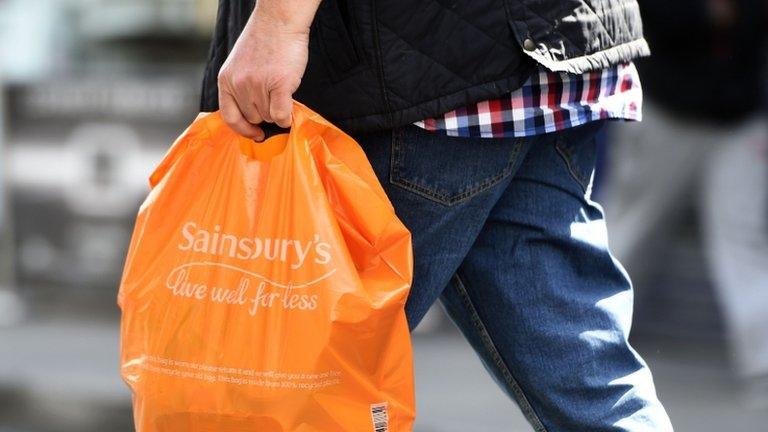Brexit: NI supermarkets to receive funding for import costs
- Published
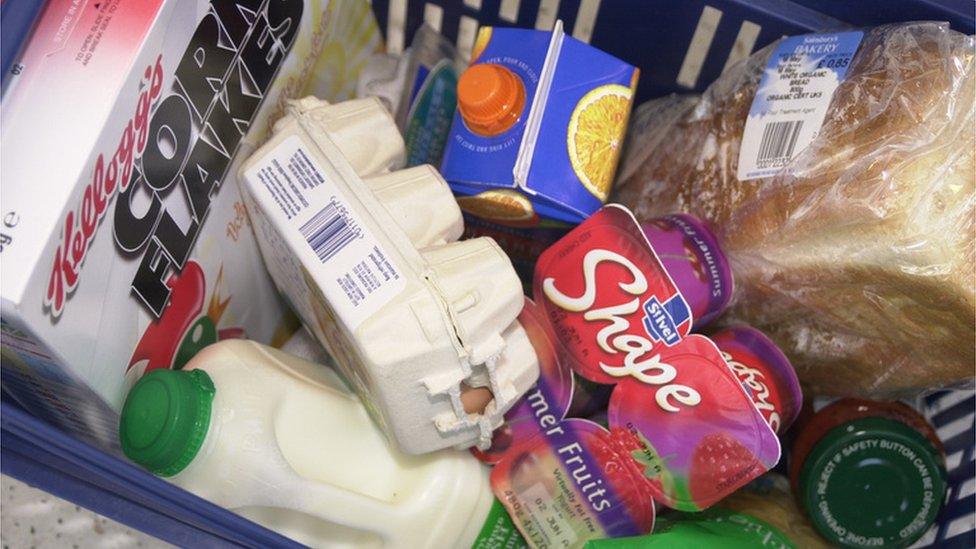
Supermarkets and other businesses are to receive government support towards the costs of moving food products across the new Irish sea border.
The government has announced a 'Movement Assistance Scheme' (MAS) which will take care of "reasonable costs".
It is mainly aimed at Export Health Certificates (EHCs), which must accompany products like meat and milk.
EHCs must be signed off by vets and can cost up to £200 a time.
The news comes after it was announced Northern Ireland is to receive a further £400m to deal with the effects of Brexit and the Irish Sea border.
Northern Ireland will stay in the EU single market for goods at the end of the Brexit transition on 1 January, while the rest of the UK will leave.
The EU has strict rules on which food products can enter its single market.
EHCs are central to enforcement of the rules; products of animal origin - meat, milk, fish and eggs - need an EHC to enter the single market.
'Grace period'
Supermarkets had warned this would lead to an increase in prices in NI and a reduction in the range of goods on sale.
On Wednesday, it emerged that NI supermarkets will be given extra time to phase in new checks, ensuring food supplies from GB do not face disruption from 1 January.
This so-called grace period will allow supermarkets to adapt their systems to deal with new Brexit controls required by the EU.
It is part of the agreement reached between the UK and EU on how the new Irish Sea border will operate.
The rules will apply whether or not the two sides can agree a trade deal.
The MAS was announced in a government 'command paper' published on Thursday.
It said businesses could be assured that, "where new requirements may be imposed, new direct costs will not be".
The scheme is due to open in the coming days.
The command paper also has further details of a trusted trader scheme which will be used to make sure goods being sent from GB to NI do not have to pay tariffs.
This will be particularly important in the event of the EU and UK failing to reach a trade deal and imposing tariffs on each others products.
'Help to seize trade opportunities'
Earlier on Thursday, the government said the extra £400m of funding will be used for things such as developing systems that will help supermarkets and small firms to manage the new trading arrangements.
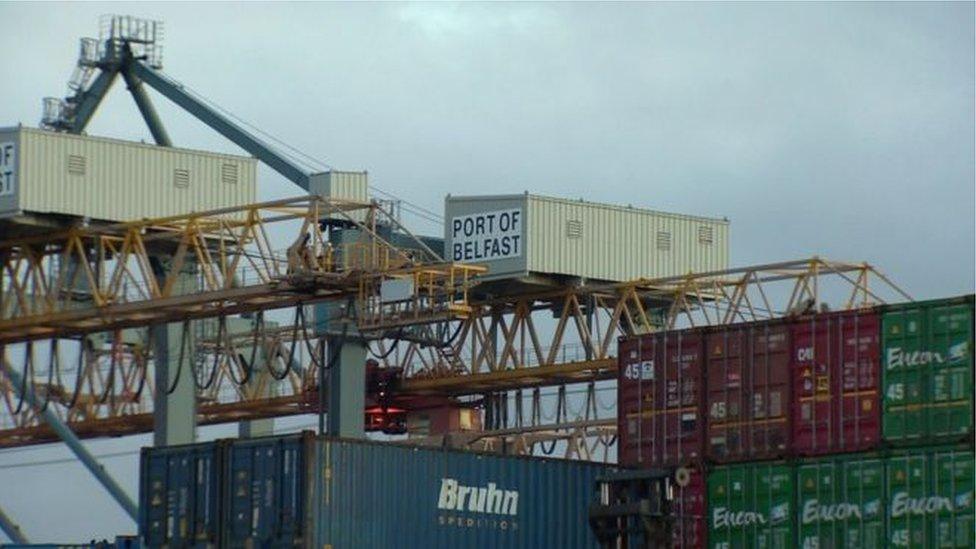
Belfast Port will be one of the locations where officials will continue to enforce EU customs codes after 1 January
It said it will also be used to help businesses "seize trade and investment opportunities ahead".
The BBC understands it will also help a project aiming to digitise and streamline export health certificates.
This is the piece of administration central to the movement of food products across the Irish Sea.
The extra £400m comes on top of £300m which has already been allocated for a system to help firms with GB-NI customs declarations.
'Medicine supply chain resilience'
According to the government, the new money will also be used to:
Support initiatives to promote NI goods and services to export markets from GB and Ireland to the rest of the world
Ensure resilience in medicine supply chains
Promote NI's potential as a leader in innovative technology and invest in the skills of its people in areas such as cybersecurity, financial technology and green technology
Invest in social development, strengthening social cohesion and building safer communities
Support initiatives to enable children from different backgrounds to be educated together
Improve the flow of goods and travel to and from GB and across Northern Ireland, boosting access to opportunities
'Unionism in strong place'
The Northern Ireland secretary, speaking on a visit to Wrightbus in Ballymena as the extra funding was announced, insisted that unionism is in a "strong place", despite NI unionist parties expressing concerns over the new Irish Sea border.
Brandon Lewis said: "Fostering economic growth and social cohesion is key to building a stable and prosperous future for Northern Ireland.
"This additional £400m will support Northern Ireland after the end of the transition period enabling NI businesses and its people to innovate and invest."
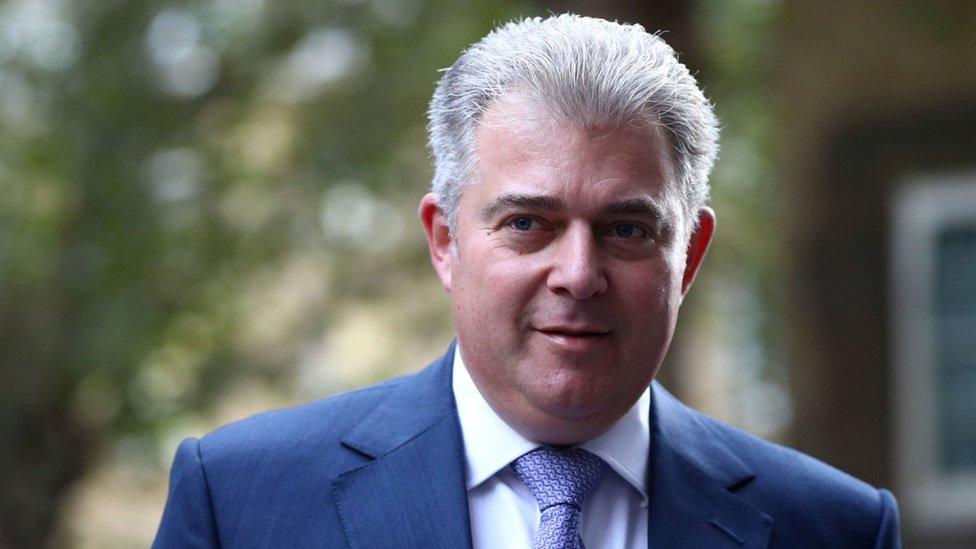
Brandon Lewis said unionism is in a "strong place"
He rejected claims of unionist unease about the plans, and said unionism "has a lot to celebrate".
He said the NI protocol meant businesses would be in a "unique position" and able to trade in a way "no other country in the world will have the opportunity to do".
He added that the four nations' approach to Covid-19 had shown the strength of the UK, which he said the government was committed to ensuring would continue.
On Thursday morning, the EU published contingency plans in case Brexit trade talks collapse without a deal.
The plans aim to ensure basic UK-EU air and road connectivity, as well as allowing the possibility of fishing access to each other's waters.

Brexit - The basics
Brexit happened but rules didn't change at once: The UK left the European Union on 31 January 2020, but leaders needed time to negotiate a deal for life afterwards - they got 11 months.
Talks are happening: The UK and the EU have until 31 December 2020 to agree a trade deal as well as other things, such as fishing rights.
If there is no deal: Border checks and taxes will be introduced for goods travelling between the UK and the EU. But deal or no deal, we will still see changes.


Related topics
- Published10 December 2020
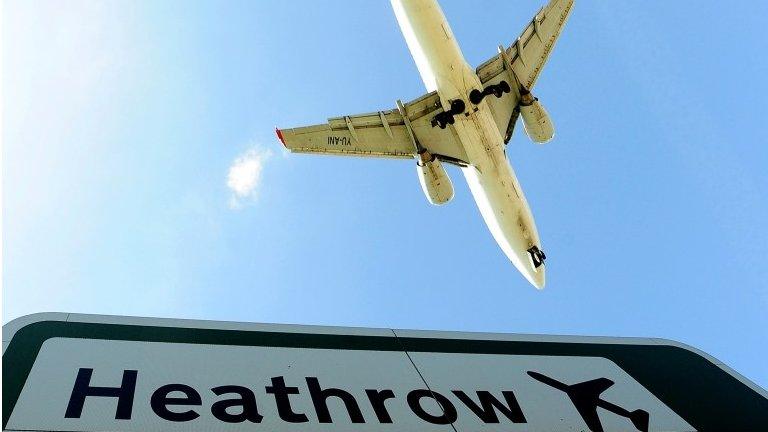
- Published9 December 2020

- Published9 December 2020
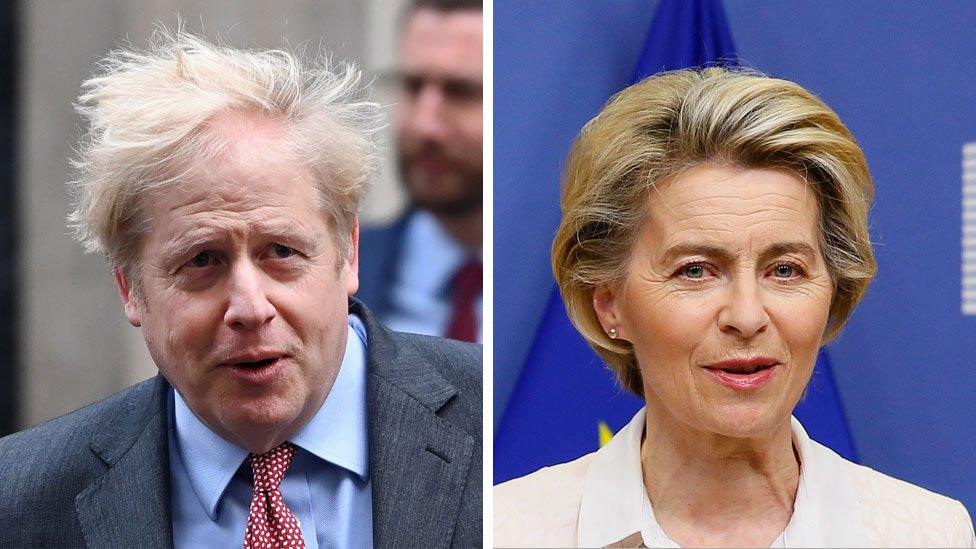
- Published13 December 2020
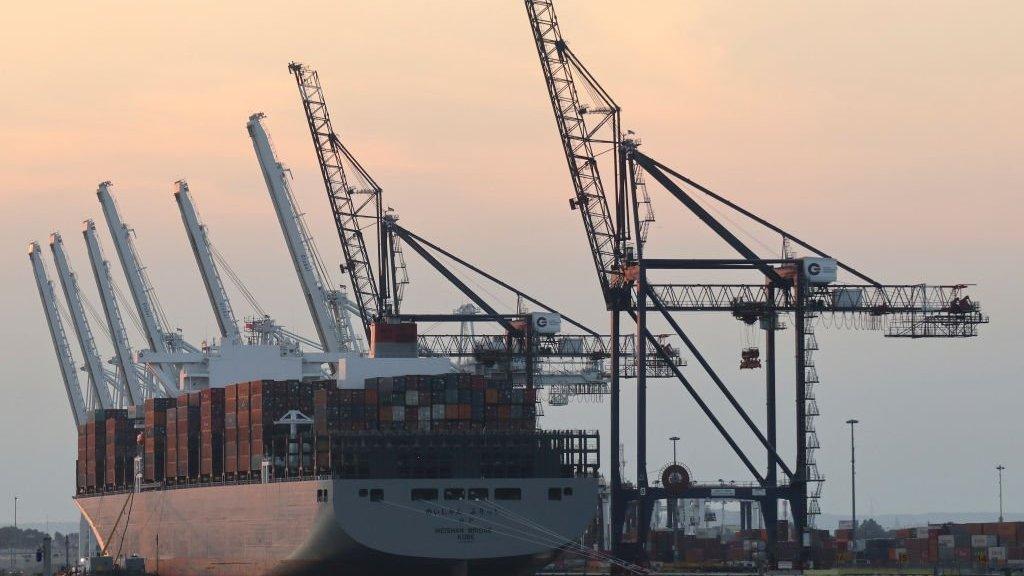
- Published8 December 2020
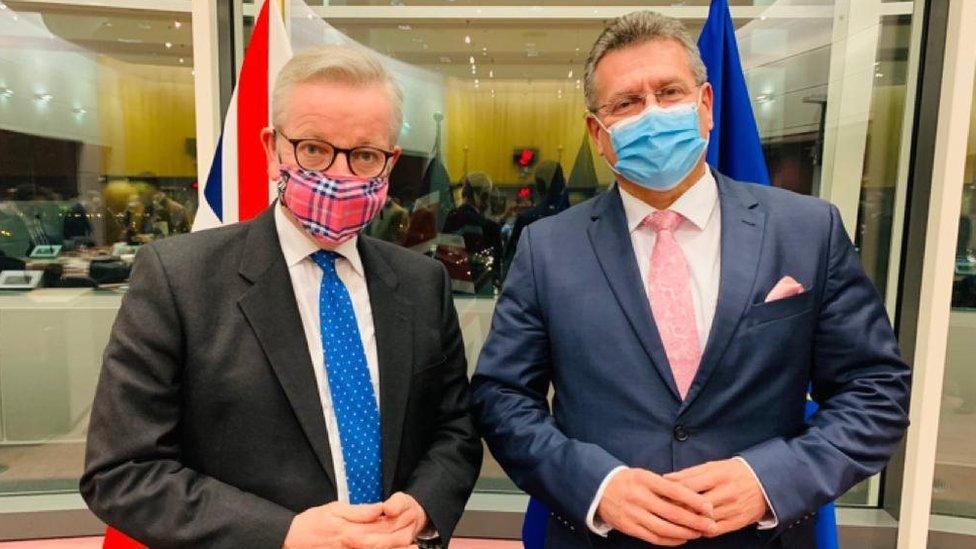
- Published2 February 2024

- Published6 November 2020
